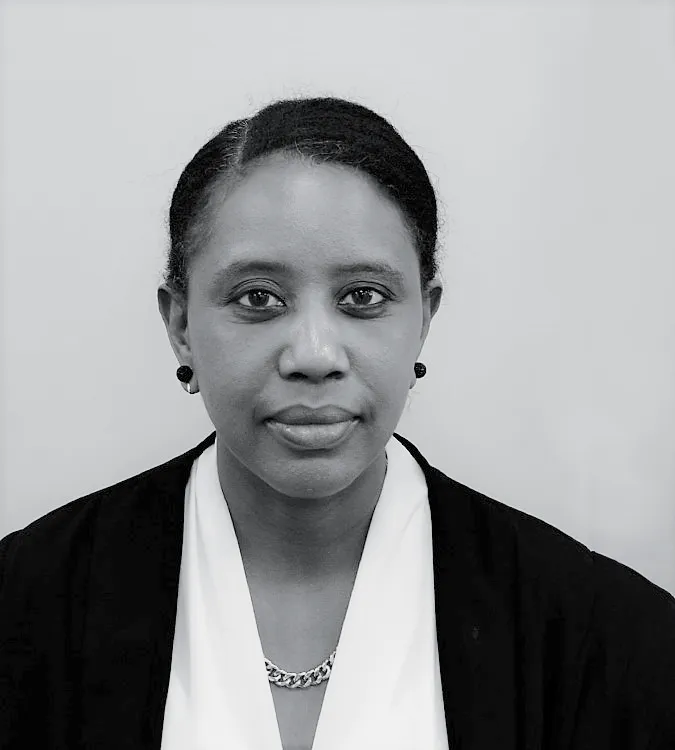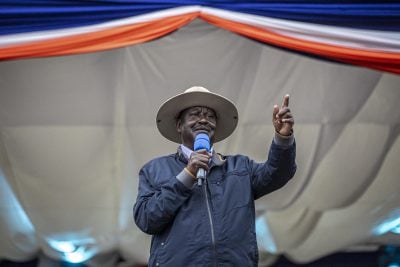Tanzanian lawyer and career diplomat Elizabeth Maruma Mrema is a United Nations assistant secretary-general and the deputy executive director of the United Nations Environment Programme. She is also the co-chair of the Taskforce on Nature Related Financial Disclosures (TNFD)
Currently, most of the financing aimed at nature-positive outcomes come from the public sector. According to UNEP’s State of Finance for Nature report, the $4.1 trillion financing gap in nature must be closed by 2050 for the world to meet its climate change, biodiversity and land degradation targets.
TNFD has developed a risk management and disclosure framework for organisations to report and act on nature-related risks. The final version of its market-led, science-based framework will be launched in September, during Climate Week in New York. The recommendations, which are designed to allow for comparable reporting worldwide, are expected to improve transparency and accountability, therefore encouraging nature-positive actions and allow financial institutions that are already acting on climate risks to use TNFD’s integrated approach to address nature-related financial risks at the same time.
Elizabeth Maruma Mrema talks to Dr Desné Masie about why climate change cannot be discussed without plans for protecting nature and the special need to build capacity in Africa.
Desné Masie: Tell us about the Task Force on Nature Related Financial Disclosures.
Elizabeth Maruma Mrema: The TNFD is a team of members from 40 companies representing over $20 trillion in assets under management. They’ve come together under our leadership to develop a framework and associated guidance for assessing and reporting on nature-related risks and impacts. These members come from either investors, financial institutions, real estate management, or insurance companies.
But their work is also supported by the TNFD forum – a group of about 1,100 who also meet regularly to share their best practices and experiences, which enables the task force members to keep on developing the framework – and 18 TNFD knowledge partners, which include leading scientific institutions and many major corporate reporting standards organisations.
Because the framework is science-based, there has to be that evidence, and that’s where these knowledge partners become key.
And then at national and regional levels, so far we’ve been able to establish about 11 consultative groups around the world who engage in dialogue with a range of indigenous peoples and local communities, organisations, and civil society, in the ongoing work of the framework.
The framework has so far produced four drafts. We are actually in the last one. The task force has been working in an innovative approach in the sense that after every draft which has been issued, we invite the private sector to look at the draft, to pilot tests, to review and give us comments, which then are considered and incorporated into the follow-up draft.
We have received over 2,500 comments in the last year. And the final version of the framework, which we are really working on currently, will be launched in New York in September.
That’s when the General Assembly will be open. This year we’ll have the Sustainable Development Goals summit. We will have the Climate Action Summit led by the UN secretary-general, and during the same week, we’ll now finally launch the final version of this framework.
Hopefully now we’ll invite the private financial institutions and corporate bodies to begin using it in terms of their reporting, and assessing the risks and impacts of their activities on nature. The World Economic Forum had already told us that 50% of global GDP is dependent on nature and the services it provides specifically.
So there’s a business case there for financial institutions and corporate bodies as well as the world economy, because if nature continues to be destroyed, 50% of the global GDP of $44 trillion will be lost, hence the importance of this framework.
In Africa, financial markets are not that deep yet, maybe with the exception of South Africa, Egypt, Kenya and Nigeria. How does Africa fit into the story as a stakeholder?
Where I still find a major gap are the indigenous local African financial entities – they need first to really be supported by the governments. Target 15 [of the Convention on Biological Diversity] calls on companies to report and disclose. It also calls on governments to put in place the necessary strategies, policies, and regulations to enable the companies and financial institutions to be able to report and disclose the impacts of their activities on nature.
So for financial institutions to act they need to understand that the activities have been negative and what they can do to avoid that. And for Africa, we need to create the capability and awareness for them to recognise that. But we also need the governments to create that enabling environment for them to be able to see that impact and report.
Of course the companies also know the major risks they face for not taking care of nature, especially considering there are what we call market risks. If you are a company in the fashion industry and all of a sudden the consumers – you and me – change our pattern and say, “If, when I buy my dress, I have to ensure it comes from sustainable cotton, sustainable labour, and no child labour, and that it is well labelled otherwise I’m not buying” – that is a risk for them for not doing something.
But there are also legal risks and we see a number of companies where individuals are going to the courts, and they don’t want to lose resources or funds as the result of litigation.
So for Africa, I think we need to create that capacity. We need to create that awareness to understand why it is important. Also we need to engage particularly with the decision makers of the different companies because unless nature becomes part of decision making within the boards of the companies, then they will not get anywhere.
And this is where I think Africa is still behind except the few countries – South Africa, Egypt, Kenya – you have mentioned. But they’re picking up. although it’s rather slow.
Some people are saying that we should be combining the nature Cop [Conference of the Parties to the Convention on Global Diversity] with the climate Cop [Conference of the Parties to the United Nations Framework Convention on Climate Change] because the issues intersect. What is your view?
It’s no longer disputable that nature and climate are intrinsically connected. And any solution to climate has to look at nature.
And unless you deal with nature, climate [change] will continue. The warming will continue, to levels unimaginable. You see that direct connection. And we now also see nature as a solution for climate mitigation. Thirty-seven percent of climate mitigation is expected to come from nature.
But when you talk of why we can’t have climate and nature conferences of the parties combined, I think we will have to look at it differently. We can combine as conferences, but we cannot combine as conferences of the parties.
Why? Because conferences of the parties of each have been established through the legal and institutional structure of the instrument that has established the secretariat and the governing body under the convention.
So when you talk of combined Cops, it means amending those instruments. And I don’t think we want to go into amending the instruments, which were negotiated 30 years ago, because the moment you do so would have opened a Pandora’s box because the issues between 30 years ago and today will come in, and even assuming that a negotiation is open, you will need countries that sign to go through the national legislative process to ratify or accede.
So to me, we do not need to touch what has already been negotiated and agreed and working. What we can do is basically say, let us organise one conference to discuss the synergies, the commonalities, the, the interlinkages between climate and nature without touching what is already legislatively established through the two conventions, the UN Framework Convention on Climate Change and the Convention on Biological Diversity.
What are your priorities, looking ahead?
For [readers] and the finance communities we know they’re very familiar with climate reporting, what we are telling them now is they cannot report on climate without also looking at nature. They cannot deal with climate change or climate warming by ignoring nature. And the two need to be looked together.
And we hope even when the TNFD framework is finally adopted by corporate bodies, financial institutions, then they will be able to report to the two together because of that connection. And that’s why TNFD looked at the climate as an entry point and brought in nature. But nature is complex and that’s why it’ll be accompanied by several guidance documents to support that reporting and disclosure framework.
We’re delighted that the financial institutions now are coming on board. We need them on board so that we can work together to mitigate companies’ impacts and ensure that the activities contribute to nature positively. And that’s why one thing we want them to do is to look at those activities which are nature negative and shift financial flows through nature positive activities.
Listen to the full interview on the African Business podcast Elizabeth Maruma Mrema: Advocating for nature and climate
Read more about the ramifications of climate security and nature for Africa in IC Intelligence Insights 09: Nature and Climate Redux
Want to continue reading? Subscribe today.
You've read all your free articles for this month! Subscribe now to enjoy full access to our content.
Digital Monthly
£8.00 / month
Receive full unlimited access to our articles, opinions, podcasts and more.
Digital Yearly
£70.00 / year
Our best value offer - save £26 and gain access to all of our digital content for an entire year!

 Sign in with Google
Sign in with Google 



